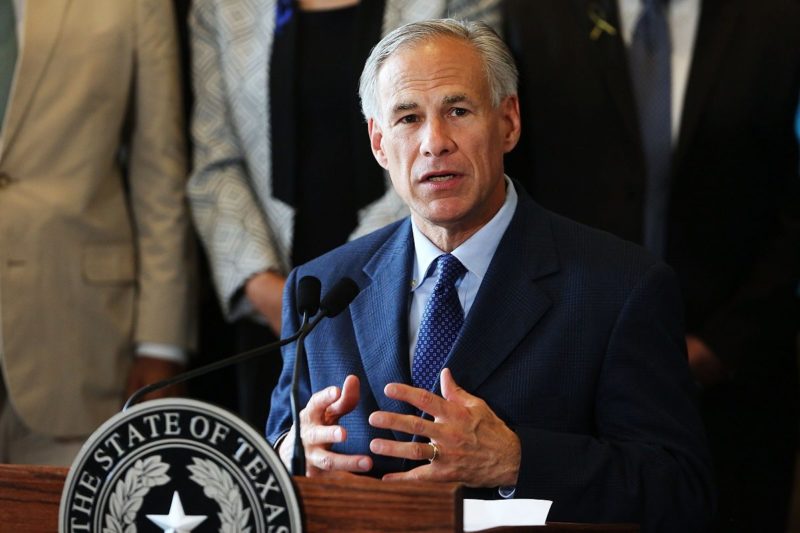Texas’ ‘Fetal Remains’ Rule Could Draw Legal Action
The Center for Reproductive Rights cited statements made by Gov. Greg Abbott (R) soliciting campaign contributions to support his efforts to “establish higher standards that reflect our respect for the sanctity of life.”

Proposed rules requiring cremation or burial of fetal remains may result in “costly litigation for Texas—litigation state taxpayers can scarcely afford,” the Center for Reproductive Rights (CRR) said in comments submitted to the Texas Department of State Health Services (DSHS).
Stephanie Toti, senior counsel at CRR, said in a statement that if Texas lawmakers continue to interfere with reproductive health care, the organization will take legal action.
The DSHS quietly proposed new rules that would prohibit abortion providers from disposing of fetal remains in sanitary landfills, and would require that fetal remains be buried or cremated.
The rules were published July 1 without notice or announcement in the Texas Register.
The new regulations would apply to all fetal remains regardless of the period of gestation. Under the proposed rules, any other tissue, “including placenta, umbilical cord and gestational sac,” could still be disposed of through “grinding and discharging to a sanitary sewer system; incineration followed by deposition of the residue in a sanitary landfill.”
Health commission spokesperson Bryan Black told the Texas Tribune that the rules were developed to ensure high sanitation standards. “The Health and Human Services Commission developed new rules to ensure Texas law maintains the highest standards of human dignity,” Black said.
The rules would require approval from the Republican-held state legislature.
Gov. Greg Abbott’s (R) spokesperson Ciara Matthews said in a statement that the governor is hopeful the legislature will approve the rules. “Governor Abbott believes human and fetal remains should not be treated like medical waste, and the proposed rule changes affirms the value and dignity of all life,” Matthews aid.
CRR cited statements made by Abbott in a fundraising email in which the governor solicited campaign contributions to support his efforts to “establish higher standards that reflect our respect for the sanctity of life.”
CRR contends that Abbott’s statements undercut “the state’s claims that these regulations have anything to do with protecting women’s health and safety.”
Blake Rocap, legislative counsel for NARAL Pro-Choice Texas, told Public News Service that the regulations will increase the cost of abortion care and the amount of people involved in the process.
“The rule creates ambiguity and involves other licensed professionals, like funeral service directors and cemeteries that are not involved in medical care, and shouldn’t be involved, and don’t want to be involved in it,” Rocap said.
Carol Everett, an anti-choice activist and supporter of the proposed rules, made dubious claims that methods of disposal of fetal remains could contaminate the water supply.
“There’s several health concerns. What if the woman had HIV? What if she had a sexually transmitted disease? What if those germs went through and got into our water supply,” Everett told the Austin Fox News affiliate.
The transmission of HIV or other sexually transmitted infections through water systems or similar means is not supported by any scientific evidence.
The new rules could have unintended consequences for medication abortion care. The proposed rules state that “products of spontaneous or induced human abortion” are subject to the law “regardless of the period of gestation.”
Under Food and Drug Administration regulations, the second part of the medication abortion regime can be taken at home. The new Texas rules could effectively ban medication abortion because an embryo miscarried at home through medication abortion cannot in practice be buried or cremated.
The Texas Alliance for Life supports the new GOP-backed rules. However, Texas Alliance for Life executive director Joe Pojman told Rewire that he was unsure what effect the new rules might have on medication abortions. “We’re going to have to study that further,” Pojman said.
Rocap told Public News Service that proposed rules are part of a “pattern of overreach” by Texas lawmakers targeting abortion providers. “This rule was proposed in the dark of night without any openness, which lets you know that they know they’re doing it the wrong way.”
DSHS has announced a public hearing on the proposed regulations Thursday at 9 a.m. central time.
